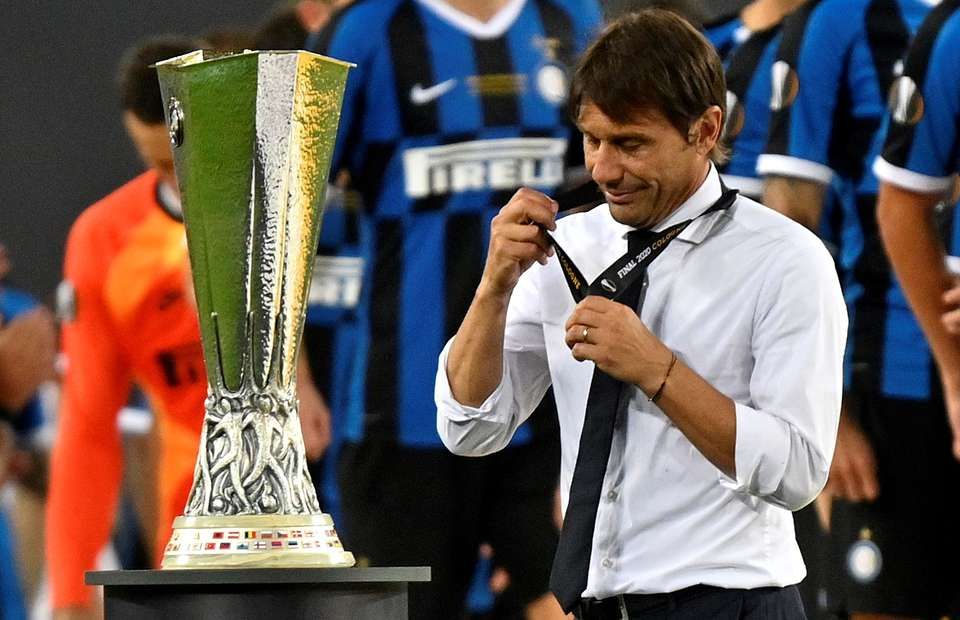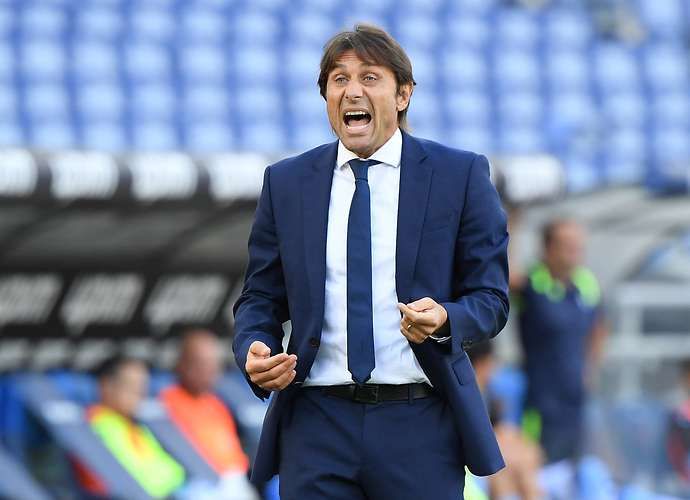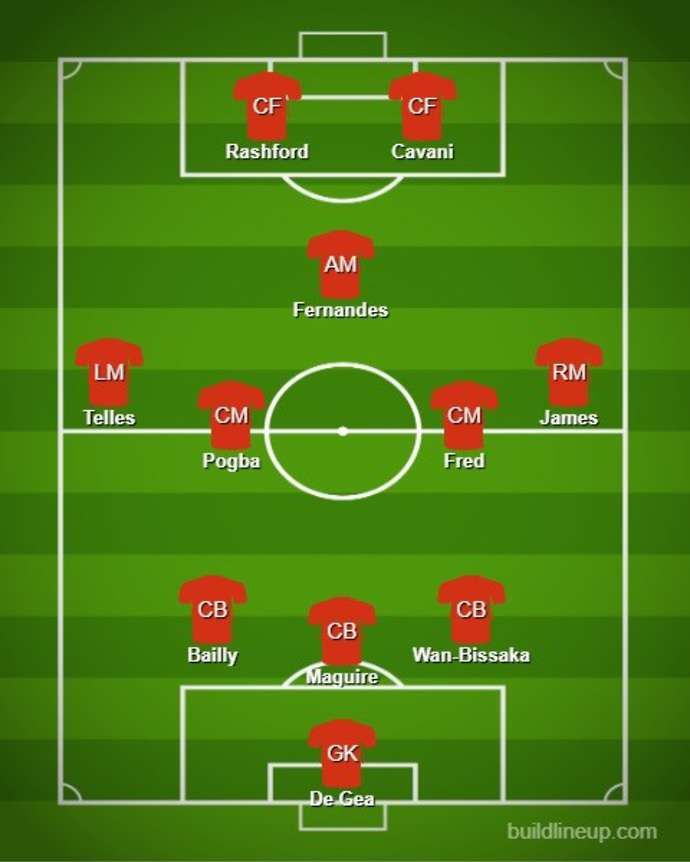The implosive nature of Manchester United’s 6-1 defeat to Tottenham in the Premier League on Sunday, let alone the scoreline itself, was always going to create a reaction from the club’s board. And according to The Daily Star, that has manifested in the form of making contact with Mauricio Pochettino, the manager who seemed almost destined for the Old Trafford hot seat before Ole Gunnar Solskjaer’s interim position was made a permanent one back in March 2019.
Indeed, there is certainly something intrinsically United-esque about the Argentine. An idealistic commitment to attacking football, a belief in building around and developing a core of young, home-grown talent, an insistence on high-intensity football, and an overarching desire to create a distinct identity that transcends big names and club-record signings. If one were to draw a Venn diagram illustrating Pochettino’s managerial philosophy and United’s traditional values, all these characteristics would belong in the overlap.
And yet, what Manchester United have become throughout the post-Ferguson era feels so far removed from such notions that you have to wonder how long it would take for Pochettino to truly make his mark at the club, how many casualties there would be and whether United have enough time on their hands or enough patience to reach the point where his labour actually bears fruit.
Perhaps a rebuild from the bottom up is exactly what United need.
Then again, the lust for rebuilding can also become a self-perpetuating obsession; just ask Liverpool, who were caught in a cycle of rebuild after rebuild - some seasons slipping to as lowly as 8th place - between the affluent spells of Rafa Benitez and Jurgen Klopp.
With Pep Guardiola’s Manchester City contract expiring at the end of this season and many of the core characters who underpinned their title campaigns either already moved on or well into their thirties - most notably Sergio Aguero and Fernandinho - there is a very real opportunity next term for any Big Six rival in a strong enough position to emerge as Liverpool’s direct competitors for the Premier League crown.
And while it feels as though a Pochettino revolution at United would take longer than this season and the next to truly reach top gear, there is an alternative appointment who has a proven history of hitting the ground running at major clubs, instantly improving their results and usually bringing in silverware, including the Premier League title. That man is Antonio Conte.
The Italian’s track record speaks for itself. After being appointed Juventus manager in 2011, he took them from seventh place the year previous to winning Serie A undefeated, a title the Turin club are still yet to relinquish. When he arrived at Chelsea in 2016, he turned a squad that had spectacularly imploded to finish 10th the campaign prior back into Premier League champions, while even his supposedly disastrous second season saw the Blues lift the FA Cup. And now, back in Italy trying to overcome the monster he created, last season he pushed an Inter Milan side that had finished fourth in 2018/19 to just one point short of beating Juve to the crown.
Compare that to Pochettino’s CV, and the difference is startling. Yes, Pochettino’s career must be placed in the context of never working at a truly elite club with gargantuan budgets - the Argentine’s career transfer spend is £495m, whereas Conte’s is £840m - but he also created a Tottenham side more than capable of winning trophies in terms of quality, and yet somehow never did.
Of course, simply taking Spurs from where he found them to the 2018/19 Champions League final is as arguably valuable as a trophy itself. But in many ways, the fact Pochettino’s never worked at the same calibre of club as Conte before, and therefore never spent the same kind of money or enjoyed the same kind of success in terms of silverware, illustrates the most crucial point.
For all of Pochettino’s admirers, the idea that he could have a Guardiola or Klopp-style impact at Old Trafford is exactly that - an idea, a notion, an exciting theory. Compelling evidence to prove as such beyond reasonable doubt doesn’t exist, at least not to the same degree as Conte’s history of instantly awakening sleeping giants by turning slumber into silverware.
As we saw at Chelsea, much of Conte’s ability to drastically improve a side’s fortunes stems from implementing his tried and trusted 3-5-2 setup or in the Blues’ case, the 3-4-3 variation. He understands exactly what the system needs and has a fantastic knack of finding the right players for it, perhaps the best examples of that being Victor Moses, who was converted into a right wing-back, Cesar Azpilicueta, who moved from right-back to centre-half, and David Luiz who suddenly transformed from Chelsea’s biggest defensive liability to one of their most reliable players.
And the encouraging thing for United is that they already have the players to fit into that template, as our starting XI graphic illustrates. What is Aaron Wan-Bissaka if not another Azpilicueta in the making? The libero role at the heart of defence could be the making of the increasingly suspect Maguire, just as it insulated Luiz from continuous calamity, and United have just purchased the ideal left wing-back in Alex Telles. Up front, meanwhile, the idea of Marcus Rashford playing alongside Edinson Cavani - a combination of height and speed, energy and experience - with Bruno Fernandes just behind is a scintillating one.
There’s another enticing aspect to Conte’s potential team selections too, centred around the player who - rightly or wrongly - has come to symbolise United’s greatest failings of the post-Ferguson era in the eyes of many. The turbulence of Paul Pogba’s Red Devils career has made him as much a problem financially as in footballing terms, but if there’s any manager who he surely respects and can in turn surely get the best out of him, it’s Conte - the man who made him a potent pillar of the first team at Juventus and gave him the platform to become a superstar.
Pochettino’s first season at Tottenham, when he ousted many of the big-name players he inherited from Andre Villas-Boas, suggests he’d have a different fate in store for the Frenchman. Some United fans might well prefer that but from a purely pragmatic point of view, selling a World Cup-winning club-record signing on the cheap because his contract’s winding down, while he’s amid the peak years of his career, isn’t the smartest move. Surely United would be better off hiring a manager who already knows how to make Pogba thrive.
Whether Conte would be seen as a long-term appointment at United in the same way as Pochettino remains a matter of debate. The Italian has drawn comparisons with Jose Mourinho and it’s easy to see why - he’s never spent more than three years in any single job, and as evident during his final season at Chelsea, when he’s not happy with the decisions made by those above him, he has a knack of heaping negativity onto everything he touches. Throw in their shared tactical pragmatism and there will likely be times where Conte makes United fans think to themselves ‘hang on, we’ve been here before - and we didn’t particularly like it the first time’.
But ultimately, it’s a choice between a manager clearly capable of instantly turning United’s fortunes around, and one who may or may not be able to build something special over the course of several years. Do United have the patience to find out if they made the right call, and what happens if it turns out they didn’t? How much money and time will have been wasted in the interim? Which Premier League clubs will have exploited their transitional years in the meantime, and how far would that set them back?
With Conte, none of those questions linger - if he were to arrive today, even within a couple of months it would be clear whether he’s having the right effect by providing his habitual upturn in results. For any top club, the idea of Pochettino replicating what he did at Spurs on a grander scale will always be an alluring one. But that’s the problem with ideas - not all of them can survive the harshness of reality.






















